No book has inspired me more to travel to the world’s wild places than Art Wolfe’s magnificent 2003 photo book: “Edge of the earth, corner of the sky”. Among the stand out images were those from the high Altiplano of Northern Chile and South West Bolivia, a seemingly bleak, windswept plateau of parched scrub, but one which contains many spectacular visual delights. Of these, one stands above all others.
Indeed, if the world’s leading naturalists were to convene to draw up a list of the top ten geographic wonders on our planet, Bolivia’s Salar de Uyuni would surely be a strong contender.
For years I had wanted to visit the Salar and last month I finally got my chance, joining eight other photographers on a two week expedition which culminated in three days at the Salar.
The Salar is the world’s highest and largest salt lake at an altitude of 3,650m. During the dry season the lake is devoid of water revealing a blinding white crust of pentagonal and hexagonal shapes. During the brief wet season, the lake bed fills with water up to a few feet in depth. But the Salar is at its most spectacular when the waters have almost evaporated leaving a covering of just a few inches. This condition lasts no more than a few weeks and sometimes less with the timing and duration changing each year depending on rainfall patterns.
The shallow water creates a perfect mirror of the sky with the degree of surrealism dependent on the amount and the pattern of cloud formations. Arriving on our first day at the Salar it was soon evident that we had hit the mother load.
As our tour leader, Joe exclaimed: “Missed the 60’s (and its mind bending substances)? Not to worry, relive it at the Salar”.
Not surprisingly, the Salar is home to a commercial salt operation. Fortunately it is still small in scale and relies on manual labour (i.e. no heavy machinery). Not far from the edge of one of the main entry and exit points to the Salar are groups of man-made salt cones, raked into place in order to allow the salt to dry and which later are removed by truck.
Much of our photography was centered around these cones as they provided a crucial element of foreground interest while adding depth and perspective to the vastness of the Salar. This was especially true at sunrise and sunset which often produced a kaleidoscope of mind blowing colours.
In order to balance the foreground exposure with that of the brighter sky, I regularly used up to six stops of graduated neutral density.
Finally, my favourite image from the Salar. The small JPG does not do justice to the incredible array of colours on display.
Coming up next: the Flamingos of Chile and Bolivia…
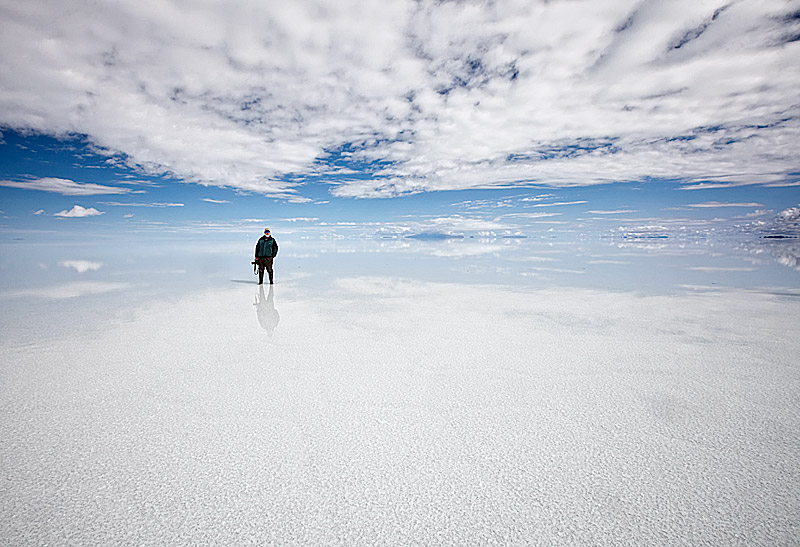
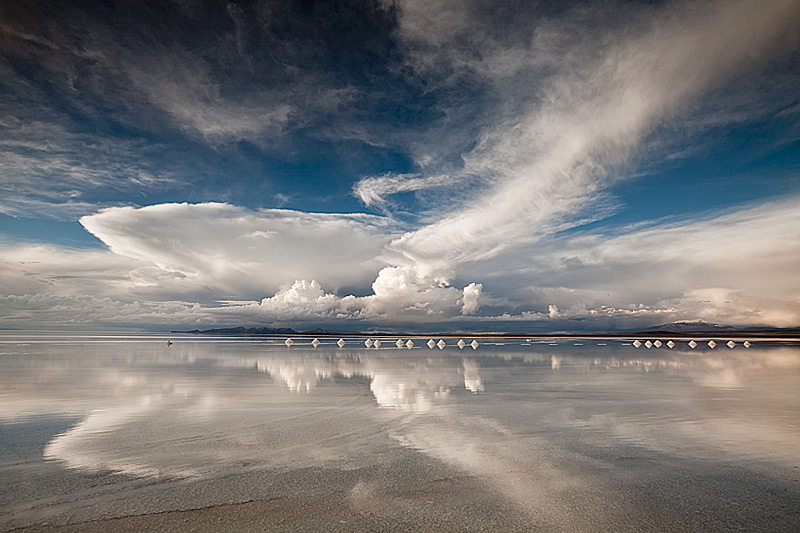
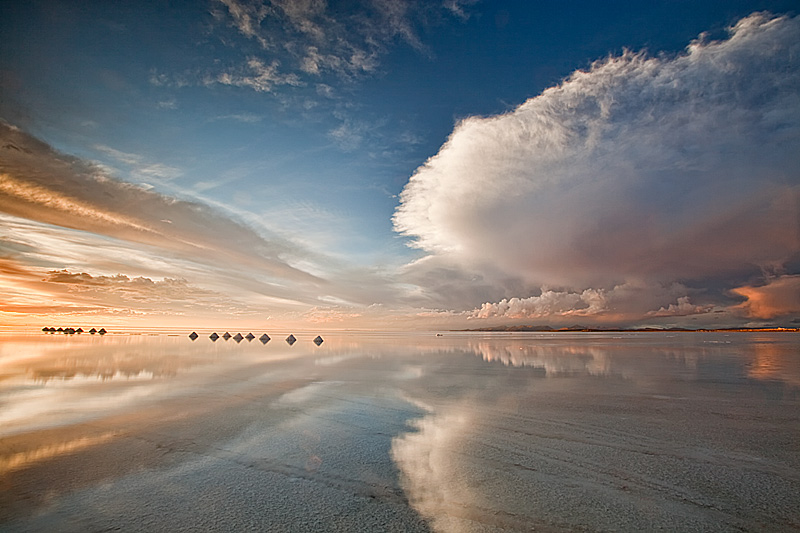
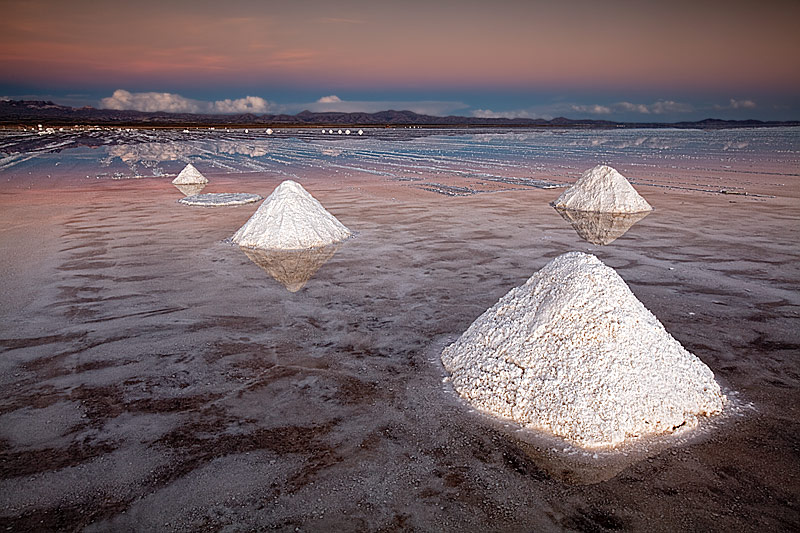
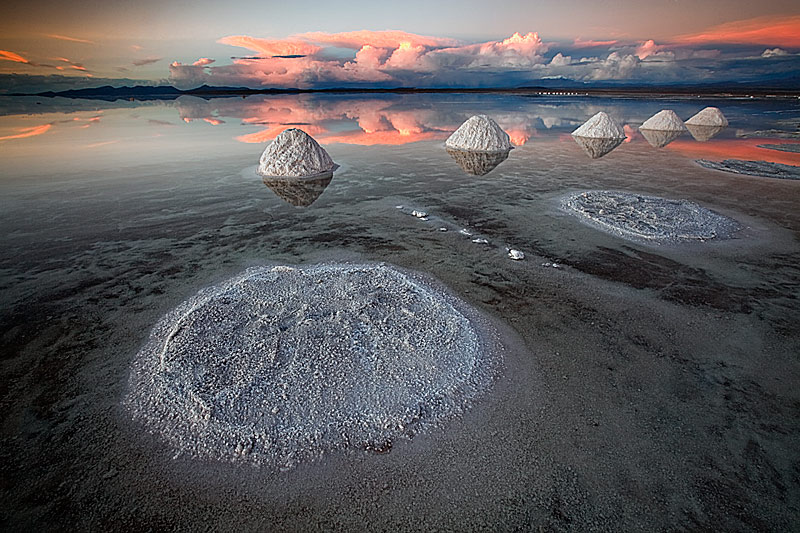
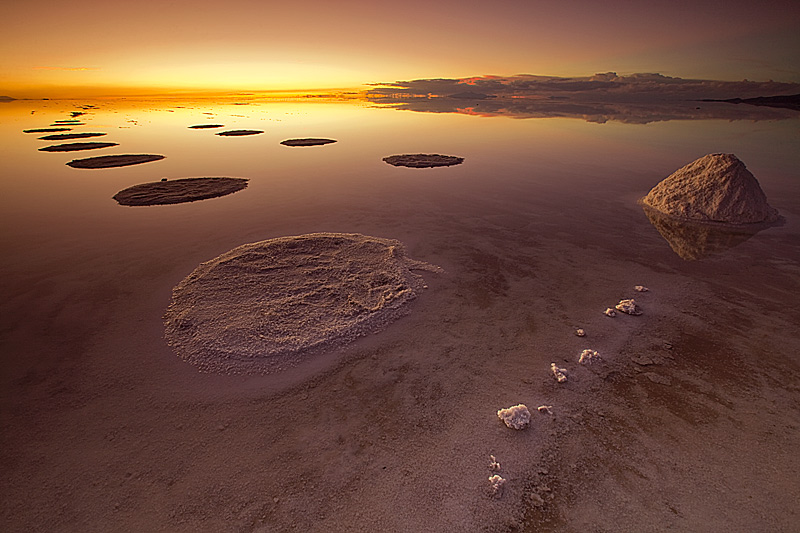
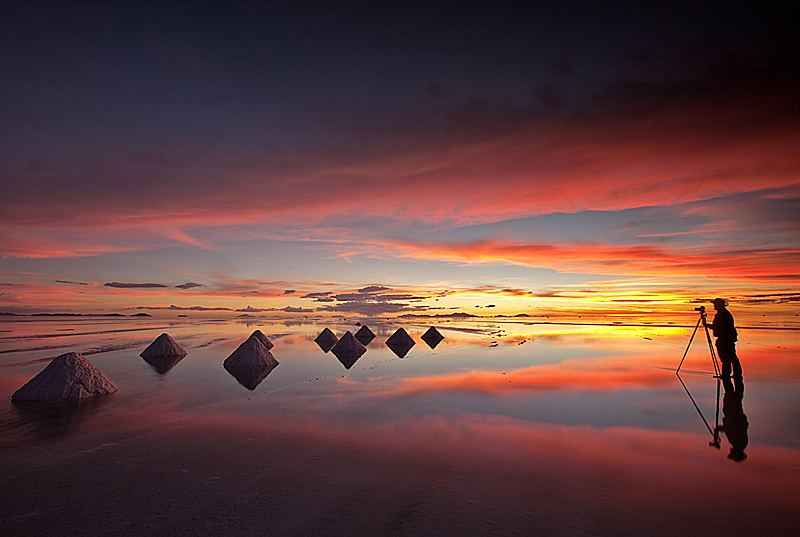
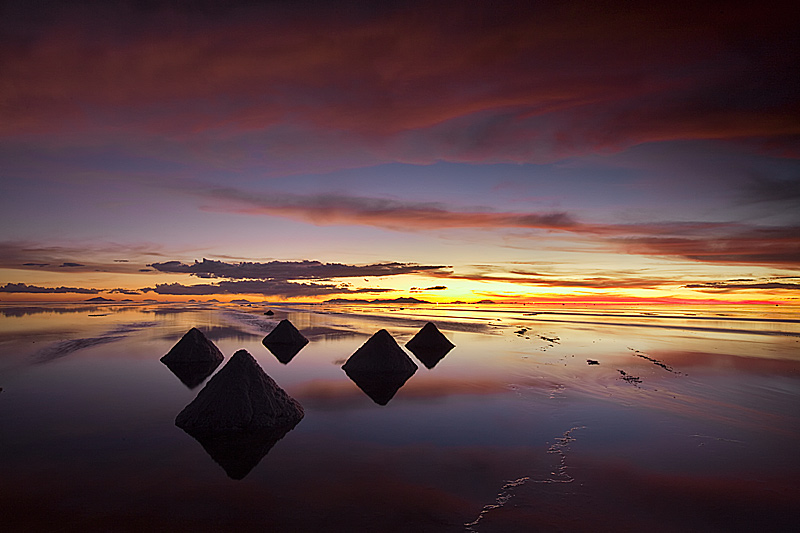
Arthur Morris
April 4, 2011
Spectacular. The second is my favorite. No birds? 🙂
Paul Mckenzie
April 4, 2011
A few birds! coming in the next post
Gordon Lindsay
April 5, 2011
Spectacular colours and what a huge sky.
ross mckenzie
April 5, 2011
Nice one Bro,
Amazing as usual
Ben Hu
April 6, 2011
Woo, it’s like a dream floating in the sky…
jattinn kochhar
April 6, 2011
breathtaking! stunning! i m at loss of words…………
Derek
April 7, 2011
Yep. Don’t know how you are going to top that!!
Susie
July 15, 2011
Glorious photos. Finally had a chance to review your blog for a bit. Are you sure you won’t have time to Kauai to take some picks of some “wild” chickens and roosters in the local Walmart parking lot?
Paul Mckenzie
September 6, 2011
Hi Susie, it’s been a life long dream to photograph the wild checkens and roosters in the local Walmart parking lot. But at this stage I can only dream that one day I will get the chance.
Françoise Pelletier
August 29, 2013
Superbes photos